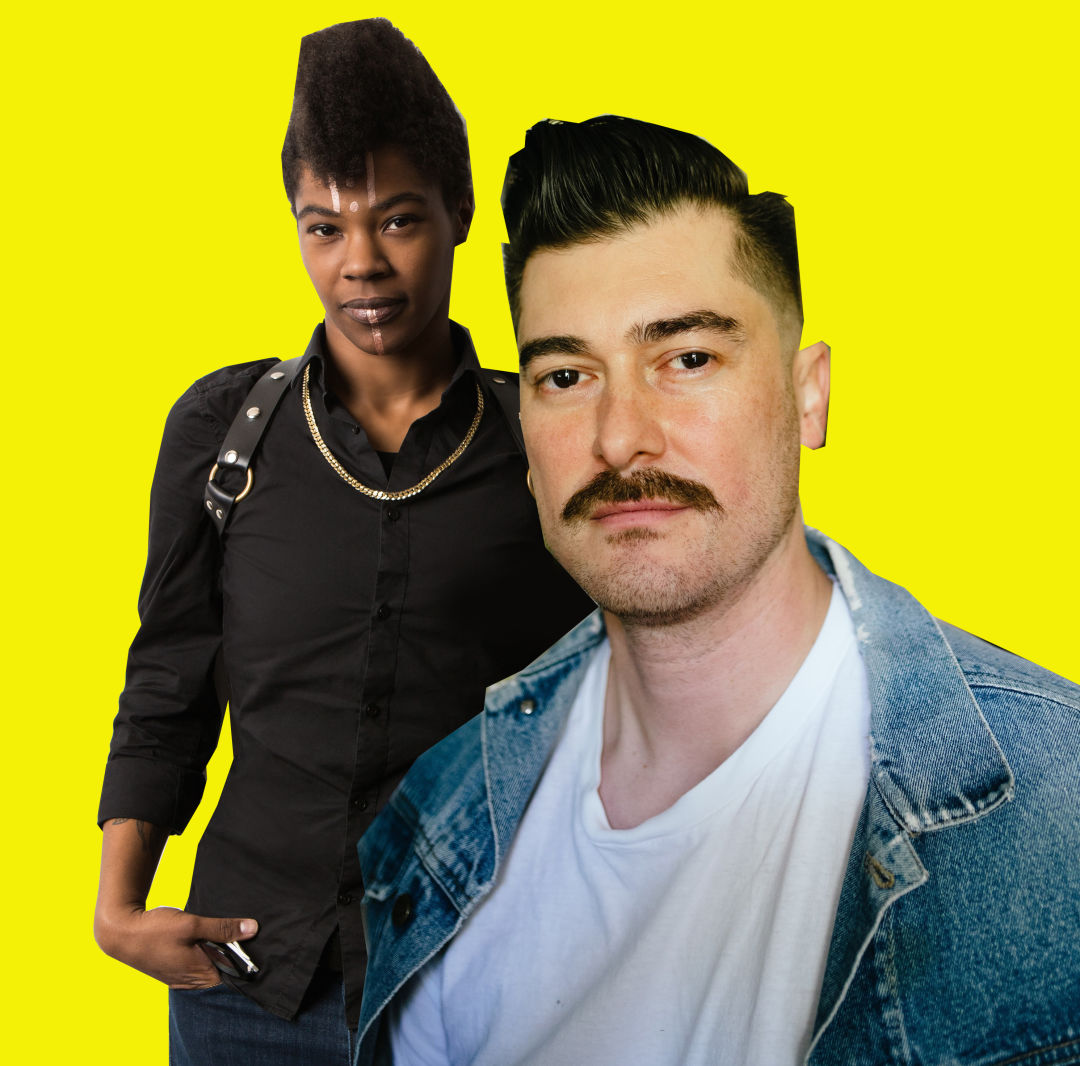Leila Haile and Joaquin Lopez Are Portland’s New Creative Laureates

Leila Haile (left) and Joaquin Lopez
When Joaquin Lopez, a musician and performing artist, heard he’d serve as one of two of Portland’s creative laureates, he felt relief. And when he found out who he’d be serving with—Leila Haile, a queer activist and tattoo artist at Ori Gallery—he felt hope.
“In arts and culture, we're trying to build our identities and express who we are,” Lopez says. “So we need an other to see us.”
And after a deadly pandemic and a long overdue racial reckoning, we could all use someone to truly see us. For Subashini Ganesan, who served as Portland’s creative laureate from 2018 to 2021, providing that visibility and “shepherd[ing] what [artists] want to do” is core to the role, which was established in 2012. (Photographer Julie Keefe served as the city’s first creative laureate from 2012 to 2018.)
During her time, and during a truly strange three years, Ganesan focused her efforts on individual artists and creative (particularly from BIPOC communities) instead of on the institutions and organizations—an engagement model that feels too old and too “trickle down, which we all know doesn't work,” she says. Ganesan conducted informal affordable artist space surveys to learn about how to bring artists to the table, cofounded and organized the PDX Area Artist Emergency Relief Fund, and now she’s providing grants for art-inspired projects with her final project: Supporting Community Healing with Art.
Yes, it’s a complicated job, and hard to do alone, but Ganesan says it’s not impossible. “All we have to do is give resources. And the real things just happen. We don't have to study things to death or just keep beating the same story over and over again, if we just give resources. [It’s not about] those silly words, like the ‘beauty’ and the ‘magic.’ The real stuff just happens.”
It also helps to know that she’s passing off the role to artists who hope to continue that work. And for the first time in the city’s creative laureate program, two artists—Lopez and Haile—will serve as the official ambassadors to the broader creative community, a process that’s got both gleaming with excitement.
"I think it's so cool that Portland has this creative laureate position, because now [people] know that this is important," Lopez says. "If it's important, they can begin perhaps building a relationship to the arts [which] builds and holds and binds a community."
Haile, who’s work has largely been focused on curating spaces for queer and trans communities, says they’d like to continue the work that’s gone into giving marginalized artists a voice in Portland.
“What’s really important to me is continuing that momentum. [There’s been] so much good foundational work has been done that I don't want to see that lost. Especially, I don't want to see that financial support lost,” Haile says. “I just want to see folks shine and be recognized for the amazing amount of work that is being done and has been being done for a while.”
But as we move ever closer toward post-pandemic, our relationship with art has changed—from who we’re supporting to how we view art in our everyday lives. When we decided who was essential at the height of the pandemic, artists were not deemed one of them. And yet we read, listened to, streamed, played, downloaded, and engaged with art every day.
“I feel like arts has always been one of those essential nonessentials. It's essential because it's core to who we are as human beings, and we literally cannot exist functionally without it…. But it's not essential because people don't believe paying for it,” Haile, who notes that art can be a particular tool for dismantling white supremacy, says. “Art helps us counter narratives…. Without art we have no identity.”
Listen: Leila Haile, Joaquin Lopez, and Subashini Ganesan talk about the creative laureate position, the arts in Portland, and more in this episode of Footnotes.




